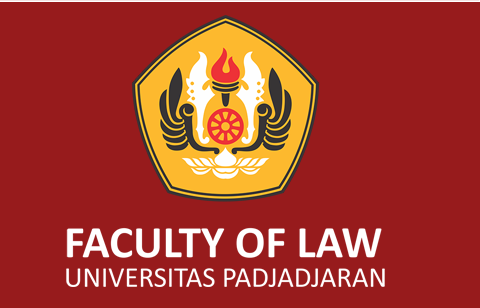Abstract
Human genetic engineering raises pros and cons. Despite the potential to contribute to the health sector, it can cause several problems. While, in theory, it goes against nature and against other conservative beliefs, human genetic engineering gains important support from Transhumanism—a philosophy promoting the scientific evolution of the human race. This study determines the relevancy regulation of human genetic engineering on a global scope and how it affects the prospects of regulating human genetic engineering in Indonesia. The study aims to provide consideration for Indonesia in determining the legality status of human genetic engineering, through analyses of legal constructions surrounding it. The study used a comparative legal research method, using laws and legislations as the focal point to compare the legal frameworks of Indonesia and other countries. It employed secondary data and applied the qualitative method. The study reveals that some countries have already regulated the issue based on the benefits and risks, laying out the boundaries and restrictions on the issue. Indonesia has not established any regulation or showed specific interest in regulating human genetic engineering. The regulation on human genetic engineering is very important because many institutions are now increasingly carrying out human genetic engineering; and many countries oversee it. This importance is based on the theory of legal progressivity, which states that the law exists for human and not the other way around. It implies the necessity of adding progressive moves into the existing legal framework to adapt to the changes and developments in society.
Recommended Citation
Disemadi, Hari Sutra
(2022)
"Human Genetic Engineering: Should Indonesia Regulate It?,"
Padjadjaran Jurnal Ilmu Hukum (Journal of Law): Vol. 9:
No.
3, Article 3.
DOI: https://doi.org/10.22304/pjih.v9n3.a4
Available at:
https://journal.unpad.ac.id/pjih/vol9/iss3/3
References
References
Books
Efendi, Joenaidi, and Johny Ibrahim. Metode Penelitian Hukum (Normatif Dan Empiris). Jakarta: Pranada Media, 2018.
Irwansyah. Penelitian Hukum (Pilihan Metode & Praktik Penulisan Artikel). Yogyakarta: Mirra Buana Media, 2020.
Oderberg, David S. “Towards a Natural Law Critique of Genetic Engineering.” In Philosophical Reflections on Medical Ethics, 109–134. London: Palgrave Macmillan UK, 2005. https://doi.org/10.1057/9780230273931_6.
Rahardjo, Satjipto. Membedah Hukum Progresif. Jakarta: Kompas, 2006.
______________. Penegakan Hukum Progresif. Jakarta: PT Kompas Media Nusantara, 2010.
Suteki, and Galang Taufani. Metodologi Penelitian Hukum (Filasafat, Teori Dan Praktik). Depok: Rajagrafindo Persada, 2018.
Other Documents
Amboro, FL. Yudhi Priyo, and Khusuf Komarhana. “Prospek Kecerdasan Buatan Sebagai Subjek Hukum Perdata Di Indonesia.” Law Review UPH XXI, no. 2 (2021): 145–172. https://doi.org/10.19166/lr.v0i2.3513.
Araki, Motoko, and Tetsuya Ishii. “International Regulatory Landscape and Integration of Corrective Genome Editing into in Vitro Fertilization.” Reproductive Biology and Endocrinology 12, no. 108 (2014): 9. https://doi.org/10.1186/1477-7827-12-108.
Aulia, M. Zulfa. “Hukum Progresif Dari Satjipto Rahardjo.” Undang: Jurnal Hukum 1, no. 1 (2018): 159–185. https://doi.org/10.22437/ujh.1.1.159-185.
Baylis, Françoise, Marcy Darnovsky, Katie Hasson, and Timothy M. Krahn. “Human Germline and Heritable Genome Editing: The Global Policy Landscape.” The CRISPR Journal 3, no. 5 (2020): 371–374. https://doi.org/10.1089/crispr.2020.0082.
Beers, Britta C van. “Rewriting the Human Genome, Rewriting Human Rights Law? Human Rights, Human Dignity, and Human Germline Modification in the CRISPR Era.” Journal of Law and the Biosciences 7, no. 1 (2020): 1-36. https://doi.org/doi.org/10.1093/jlb/lsaa006.
Bergman, Mary Todd. “Perspectives on Gene Editing.” Harvard University. Accessed February 25, 2022. https://news.harvard.edu/gazette/story/2019/01/perspectives-on-gene-editing/.
Britannica. “Genetic Engineering.” Accessed January 10, 2022. https://www.britannica.com/science/genetic-engineering.
Collins, Francis S. “Statement on NIH Funding of Research Using Gene-Editing Technologies in Human Embryos.” In Bioethics: An Anthology. USA: National Institutes of Health, 2015.
Cyranoski D, Ledford H. “International Outcry over Genome-Edited Baby Claim.” Nature. Accessed February 2022. https://www.nature.com/articles/d41586-018-07545-0.
Damayanti, Lamia Putri, and Priscila Asoka Kenasri. Gerakan Transhumanisme: Etika Dalam Transformasi Manusia di Masa Depan Gerakan. Yogyakarta: Fakultas Ilmu Sosial dan Ilmu Politik Universitas Gadjah Mada, 2018.
Doudna, Jennifer A. “The Promise and Challenge of Therapeutic Genome Editing.” Nature 578, no. 7794 (2020): 229–236. https://doi.org/10.1038/s41586-020-1978-5.
Drastawan, I Nengah Adi. “Kedudukan Norma Agama, Kesusilaan, Dan Kesopanan Dengan Norma Hukum Pada Tata Masyarakat Pancasila.” Jurnal Komunitas Yustisia 4, no. 3 (2021): 928–939. https://doi.org/10.23887/jatayu.v4i3.43189.
Greely, Henry T. “CRISPR’d Babies: Human Germline Genome Editing in the ‘He Jiankui Affair'.” Journal of Law and the Biosciences 6, no. 1 (2019): 111–183. https://doi.org/doi.org/10.1093/jlb/lsz010.
Haryanti, Tuti. “Hukum Dan Masyarakat.” Tahkim 10, no. 2 (2014): 160–168. https://doi.org/10.33477/thk.v10i2.57.
Hathout, H. “An Islamic Perspective on Human Genetic and Reproductive Technologies.” Al-Majallah Al-Sihhiyah Li-Sharq Al-Mutawassit 12 (2006): 25. https://europepmc.org/article/med/17361675.
Hersch, Lara. “Genetic Modification: The Ethical and Societal Implications Of CRISPR Technology.” NYU School of Medicine High School Bioethics Project. Accessed January 20, 2022. https://med.nyu.edu/departments-institutes/population-health/divisions-sections-centers/medical-ethics/sites/default/files/medical-ethics-high-school-bioethics-crispr.pdf.
Huang, Akshat Rathi and Echo. “More than 100 Chinese Scientists Have Condemned the CRISPR Baby Experiment as Crazy.” Quartz. Accessed February 25, 2022. https://qz.com/1474530/chinese-scientists-condemn-crispr-baby-experiment-as-crazy.
Knoppers, Bartha Maria, Nguyễn Minh Thư, Erika Kleiderman, and Forough Noohi. “Human Genome Editing: Ethical and Policy Considerations.” Accessed February 25, 2022. https://www.genomequebec.com/DATA/PUBLICATION/34_en~v~Human_Genome_Editing_-_Policy_Brief.pdf.
Liu, Shuang. “Legal Reflections on the Case of Genome-Edited Babies.” Global Health Research and Policy 24, no. 5 (2020): 1. https://doi.org/10.1186/s41256-020-00153-4.
M, Sirajuddin. “Eksistensi Norma Agama Dan Pancasila Dalam Pembentukan Peraturan Perundang-Undangan.” Nuansa: Jurnal Studi Islam Dan Kemasyarakatan 8, no. 1 (2015). https://doi.org/10.29300/nuansa.v8i1.323.
Mahrus. “Kontroversi Produk Rekayasa GenetikaYang Dikonsumsi Masyarakat.” Jurnal Biologi Tropis 14, no. 2 (2014): 109. https://doi.org/http://dx.doi.org/10.29303/jbt.v14i2.138.
Mourby, Miranda, and Michael Morrison. “Gene Therapy Regulation: Could in-Body Editing Fall through the Net?” European Journal of Human Genetics 28, no. 7 (2020): 979–981. https://doi.org/10.1038/s41431-020-0607-y.
National Academy of Sciences. Human Genome Editing. Washington, D.C: National Academies Press, 2017. https://doi.org/10.17226/24623.
Bostrom, Nick. "Human Genetic Enhancements: A Transhumanist Perspective." Accessed February 10, 2022. https://nickbostrom.com/ethics/genetic.pdf.
Porter, Allen. “Bioethics and Transhumanism.” The Journal of Medicine and Philosophy: A Forum for Bioethics and Philosophy of Medicine 42, no. 3 (2017): 237–260. https://doi.org/10.1093/jmp/jhx001.
Postnote. “GENE THERAPY.” Postnote. Accessed March 10, 2022. https://researchbriefings.files.parliament.uk/documents/POST-PN-240/POST-PN-240.pdf.
Romanovsky, G. B. “Legal Regulation of Genetic Research in Russia and Abroad.” Lex Russica 7 (2016): 93–102. https://doi.org/10.17803/1729-5920.2016.116.7.093-102.
Saragih, Erman Sepniagus. “Analisis Dan Makna Teologi Ketuhanan Yang Maha Esa Dalam Konteks Pluralisme Agama Di Indonesia.” Jurnal Teologi Cultivation 2, no. 1 (2018): 6. https://doi.org/doi.org/10.46965/jtc.v2i1.175.
Bennett, Steven P. "Genetic Engineering: Rearranging the Molecules of Life." Accessed January 15, 2022. https://gs.ucdenver.edu/ministem/pdf/2014_miniStem_Bennett.pdf.
School of Medicine University of Missouri. “Gene Therapy and Genetic Engineering.” Center for Health Ethics. Accessed February 2, 2022. https://medicine.missouri.edu/centers-institutes-labs/health-ethics/faq/gene-therapy.
Schweikart, Scott J. “Global Regulation of Germline Genome Editing: Ethical Considerations and Application of International Human Rights Law.” Loyola of Los Angeles International and Comparative Law Review 43, no. 3 (2021): 279. https://digitalcommons.lmu.edu/ilr/vol43/iss3/6.
Second Thought. “Building the Perfect Human.” Accessed January 20, 2022. https://nebula.app/videos/building-the-perfect-human.
Synthego. “History of Genetic Engineering and the Rise of Genome Editing Tools.” Synthego. Accessed January 10, 2022. https://www.synthego.com/learn/genome-engineering-history.
The People’s Republic of China. “Law of the People’s Republic of China on the Progress of Science and Technology.” Accessed March 5, 2022. http://english.www.gov.cn/archive/laws_regulations/2014/08/23/content_281474983042277.htm#:~:text=Law of the People’s Republic of China on Progress of Science and Technology,-Updated%3A Aug 23&text=Article 3 The State guarantees,interests of scientists an.
United Nations. “Playing with Genes: The Good, the Bad and the Ugly.” Accessed February 5, 2022. https://www.un.org/development/desa/undesavoice/more-from-undesa/2019/06/45413.html.
Victoria State Government. “Genetic Information Is Found in All Living Things.” Victoria State Government. Accessed January 10, 2022. https://www.education.vic.gov.au/school/teachers/teachingresources/discipline/science/continuum/Pages/geneticinfo.aspx.
Widyastuti, Dyah Ayu. “Terapi Gen: Dari Bioteknologi Untuk Kesehatan.” AL-KAUNIYAH Journal of Biology 10, no. 1 (2017): 49–62. https://doi.org/10.15408/kauniyah.v10i1.4864.
Zhang, Laney. “On Gene Edited Babies: What Chinese Law Says.” Law Librarian of Congress. Accessed March 20, 2022. https://blogs.loc.gov/law/2018/12/on-gene-edited-babies-what-chinese-law-says/.
Legal Documents
Convention for the protection of Human Rights and Dignity of the Human Being on the Application of Biology and Medicine: Convention on Human Rights and Biomedicine (ETS No. 164) (1997).
Regulation (EC) No 1394/2007 of The European Parliament and of The Council of 13 November 2007 on advanced therapy medicinal products and amending Directive 2001/83/EC and Regulation (EC) No 726/2004 (2007).
Regulation (EU) No 536/2014 of The European Parliament and of The Council of 16 April 2014 on clinical trials on medicinal products for human use, and repealing Directive 2001/20/EC (2014).
DOI
https://doi.org/10.22304/pjih.v9n3.a4










